Introducing the ITEA 3 Call 7 projects

ITEA 3 Call 7 projects
A vital Community
In ITEA 3 Call 7, the last Call before the launch of ITEA 4, 16 projects have been labelled involving 21 countries and representing an effort of more than 2,400 Person-Years. It illustrates the vitality of the ITEA Community, which has been able to deliver high-quality projects despite the absence of physical meetings since before the ITEA PO Days were held online in September 2020. As usual, there is a good balance between SMEs that have the agility to innovate, large industries that can quickly bring the outcomes of the projects to the market and research centres that provide beyond State-of-the-Art research. All the projects have important business objectives and interesting innovation goals. We are eager to seeing them start as soon as possible.In this Call, we see a strong focus on two smart challenges, engineering and health, covering more than 60% of the labelled projects. The engineering domain is very active, with a strong emphasis on Artificial Intelligence. New engineering methods or processes need to be developed for the AI applications and there is the opportunity to apply AI techniques to the engineering field itself. The health sector is also strongly evolving with the integration of new sensors that open up new opportunities. In this field, we also see the influence of AI and emerging technologies like virtual reality.
Besides these two strong sectors, three projects are related to Safety and Security, which is a very important challenge in the development of resilient IT systems. We can see the impact of the customer workshop on cyber security, organised in June 2020, through the emergence of these projects that cover interesting aspects of the Safety and Security domain. The three remaining projects are also very relevant, with activities that will impact how we communicate and collaborate, how we share spaces between humans and autonomous vehicles and how we optimise certain industrial processes.
As already mentioned, AI continues to inform almost all the projects when it comes to the technology dimension. The projects aim for interesting progress in machine learning, natural language processing, semantic representation, image processing, digital twin technology and virtual reality. They also plan to apply these technologies in use cases covering most of the industrial sectors (healthcare, automotive, transportation, energy, electronics, travel and construction), promising a strong business impact.
In summary, ITEA 3 Call 7 has given birth to 16 important projects that have the ability to boost our industry and change society. Software innovation is at the centre of important transformations and will help to accelerate the recovery after the sanitary crisis.
In the end one project was cancelled after labelling due to lack of funding in (one of) the main countries.
ITEA 3 CALL 7 PROJECT OVERVIEW
Hereafter you will find a short project description of each labelled project.

3STARS – 20011
Sustainable Smart Systems, Technologies, and Rating Scale
Project
leader:
Virtual Vehicle Research GmbH (Germany)
Sustainability is one of the key engineering priorities of our time. The 3STARS project
will
introduce sustainability as an engineering discipline to software-intensive applications. It
will establish a measurable quality model accompanied by a dedicated rating scale. The
capability to make accurate predictions based on sensing the world around us will drive the
market for sustainable systems. 3STARS therefore focuses on simulation/AI-driven methods.
Effective system design and development processes, efficient tools, new computing and
communication architectures and increased system interoperability will lead to circular
flows of
digital artifacts, enabling new business models.
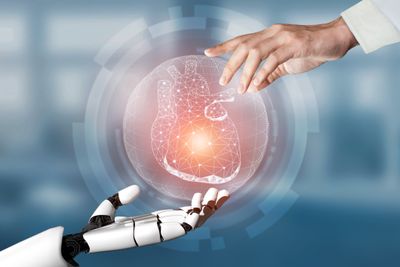
ASSIST – 20044
Automation, Surgery Support and Intuitive 3D visualization to optimize workflow in IGT
SysTems
Project
leader: Philips Medical Systems Nederland B.V. (Netherlands)
Current software image-guided therapy applications to assist the physician still require significant manual user interaction while all attention should go to the patient instead. The ASSIST project will develop technologies and solutions to get the physician back in control of the clinical procedure by assisting or automating part of the physician’s tasks during image-guided therapy procedures. The aim of the project is to optimise and simplify the workflow in image-guided therapy procedures with the main goal of streamlining physicians’ work, optimising imaging systems, improving patient outcomes, reducing human error and lowering costs.
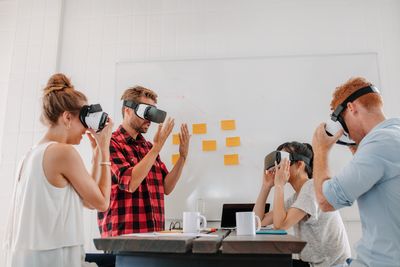
Comrade – 20008
COMmunicate and collaboRAte in extendeD rEality
Project
leader: TNO (Netherlands)
Traditional video conferencing tools come with
limitations
that prevent efficient and meaningful remote communication and interactive participation.
The
global pandemic and climate change urgently demand an era of eXtended Reality (XR)
communication
and collaboration. The aim of the COMRADE project is to specify, develop, integrate and
validate
end-to-end networked solutions for real-time communication and collaboration in XR. The
project
goal is to enable XR video conferencing and meetings, virtual travelling, expertise at a
distance, virtual studio productions, virtual home improvement and shared media and
entertainment.

CONTRAST – 20031
CONtinuous engineering and TRustworthy operation of AI-enabled SysTems
Project
leader: Syntell AB (Sweden)
Our vision is future Cyber-Physical Systems (CPS)
which
are enabled by automation, interconnection and AI. However, without trustworthiness, future
CPS
will not be an economic success and market introduction will be slow or even impossible in
cases
where safety cannot be guaranteed. To address this important challenge and ensure that
trustworthy systems are made in Europe, CONTRAST sets out to develop a runtime assurance
approach for ensuring the trustworthiness of complex CPS with AI and ML components. The
approach
shall enable the continuous optimisation of system performance while guaranteeing key
properties
of trustworthiness.

ENTA – 20020
Encrypted Network Traffic Analysis for Cyber Security
Project
leader: Solana Networks (Canada)
Today, more than 80% of Internet traffic is
encrypted and there is a strong need for innovative research and the development of tools
able
to provide visibility in encrypted traffic and detect cyber-attacks. The ENTA project will
explore three solutions based on Encrypted Network Traffic Analysis (ENTA) in order to
identify
encrypted applications, encrypted data exfiltration and rogue encrypted IoT devices. The
ENTA
project will deliver an encrypted traffic analysis service platform for cybersecurity that
will
support several basic building blocks necessary for any machine learning/deep learning-based
traffic analysis.
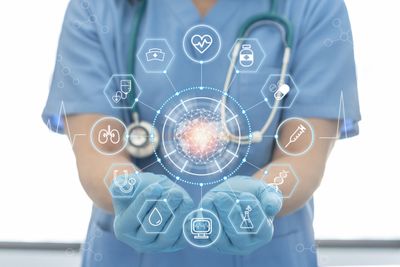
HeKDisco – 20030
Healthcare Knowledge Discovery
Project
leader: Mantis (Turkey)
The main purpose of the HeKDisco project
is
to reduce potential human mistakes in medical care for patients. Following evidence-based
medicine (EBM), HeKDisco aims to use the best (reliable) evidence in making decisions on the
care of individual patients so that clinician experience, patient values and preferences and
the
best empirical clinical guidelines are all integrated. HeKDisco aims to transform big health
data from volume-based to value-based by generating a relational knowledge base that can
lead to
innovative treatments, predict therapeutic outcomes and provide early diagnosis.

InnoSale - 20054
Innovating Sales and Planning of Complex Industrial Products Exploiting Artificial
Intelligence
Project
leader: Software AG (Germany)
InnoSale aims to innovate today’s sales systems
and
processes for complex and variable industrial equipment, plants and services that require
time-consuming back-office support. InnoSale develops methods to increase the expressiveness
of
validation rules and to suggest relevant purchase options (case-based reasoning). Sales
engineers will be supported in finding previous customer requests & orders and other
suitable
solutions quickly, as well as in identifying similarities between customers (evolutional
clustering). User experience will be improved and supported by combining deep learning
systems
with augmented reality techniques, 3D modelling and 3D printing.

NGAST – 20013
Next Generation Automated Security Testing
Project
leader: ARD GROUP (Türkiye)
Internet of Things (IoT) device manufacturers and
operators face the challenge of defending a vastly larger attack surface with essentially
the
same resources. Methods and tools for automated security testing are needed to eliminate
security weaknesses lurking in software or APIs. NGAST will tackle these challenges by
creating
(1) methods to automatically identify software bugs that lead to security vulnerabilities
and
(2) an open, extensible platform where these methods can be easily applied. NGAST’s goal is
to
develop next-generation continuous integration/continuous delivery-capable automated
security
testing solutions for source code, binaries and distributed systems in the IoT domain.

OMD – 20003
Optimal Management of Demand
Project leader: Experteam (Turkey)
Increasing
demands and time pressures accelerated by the pandemic are causing organisations to ask for
new
automations to proactively manage their environments. The OMD framework produced in this
project
will help businesses to assign the correct agent to a specific service demand effectively
and
remotely. This will shorten the time and reduce the cost of operations by avoiding
repetitions.
The OMD framework will rapidly and effectively contribute to many sectors, using AI models
to
improve service as a CSM approach. By improving the overall efficiency of operations on the
supply side, the project will also increase customer happiness.

Secur‐e‐Health – 20050
Privacy preserving cross-organizational data analysis in the healthcare
sector
Project
leader: Kelvin Zero (Canada)
Sensitive health data is often kept in silos in a
way
that cannot be efficiently leveraged for legitimate medical, research and data analysis
purposes. The goal of the Secur‐e‐Health project is to integrate new approaches for digital
identification technologies and privacy-preserving analysis techniques in a secure system
infrastructure. The Secur-e-Health system will allow medical institutions of all types to
collaborate together and leverage data analyses and insights. This is expected to have a
significant impact on the quality of the medical predictive models, the efficiency of
data-driven treatments, the acceleration of new clinical research and the improvement of
healthcare in general.
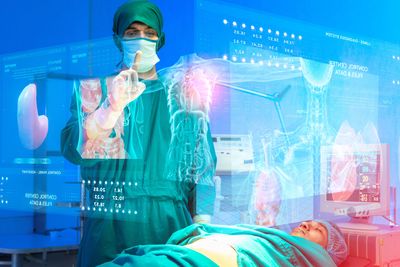
SIGNET – 20052
Sensing and Image-Guided Neurological therapies, cardiac Electrophysiology and Tumour
treatments
Project leaders: Philips (Netherlands)
Image-guided
treatment technologies can improve the outcome of many complex medical interventions. Due to
safety reasons and a lack of targeting accuracy, many complex medical treatments are
currently
delivered over several sessions. The overall objective of SIGNET is to develop an ecosystem
of
companies and institutes to deliver efficient image-guided treatment workflows for efficient
and
safe single-visit treatments. This will replace current complex procedures in cardiology,
oncology and neurology and improve patient comfort, safety, treatment outcomes, staff
availability and economic viability.
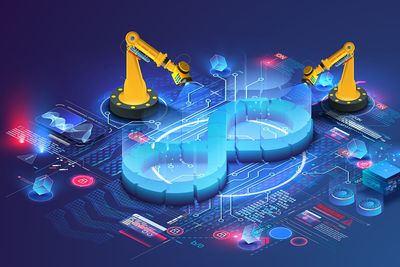
SmartDelta – 20023
Automated Quality Assurance and Optimization in Incremental Industrial Software Systems
Development
Project
leader: RISE (Sweden)
Too often, certain quality aspects of a system begin to
deteriorate as it is built and incremented with new features. It is therefore important to
be
able to accurately analyse and determine the quality implications of each change and
increment
to a system. To address these challenges, SmartDelta will build automated solutions for the
quality assessment of product deltas in a continuous engineering environment by providing
smart
analytics from development artifacts and system execution, offering insights into quality
improvements or the degradation of different product versions and providing recommendations
for
the next builds.

The Mechanical Web – 20019
Smart Digital Supply Chains in Manufacturing Industry
Project
leader: Fraunhofer SCAI (Germany)
Today, the optimisation of integrator systems
by
model prediction is nearly impossible or too costly. The main goal of the Mechanical Web is
to
provide solutions for the efficient exchange of executable and smart surrogate models
between
component suppliers and the integrating system designer. The focus of the Mechanical Web
project
is on AI/ML-based methods to create, evaluate and integrate supplier models into OEMs’
complex
system design environments. Suppliers and end-users will benefit from faster integration
times
and better feedback on part behaviour in the target system at early phases of design.
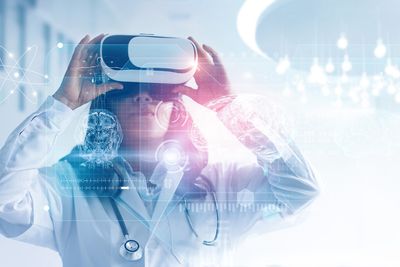
VRCare – 20048
Virtual Reality Healthcare Simulations
Project leader:
Lapland University of Applied Sciences (Finland)
Despite the rapid development
of
the eXtended Reality (XR) industry, there is a lack of high-quality, certified training and
simulation for healthcare professionals. The VRCare project responds to these needs by
co-creating the first XR healthcare ecosystem across Europe, which employs a holistic
approach
to XR healthcare simulation by combining strong technical knowledge, service design, AI &
machine learning, hand tracking, natural language processing, pedagogical design, research
and
certification. VRCare aims to improve overall healthcare performance and make a positive
impact
on patients’ lives by reducing the number of mistakes professionals make.
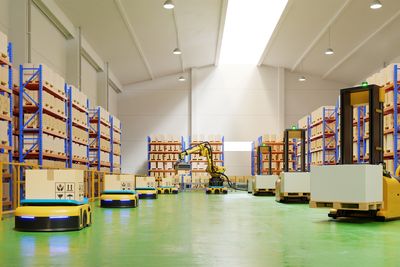
V‐Space – 20039
Hybrid workspaces for humans and (semi-)autonomous vehicles
Project
leader:
Almende BV (Netherlands)
Autonomous vehicles (AVs) are being utilised by many
industries, such as agriculture, retail, mining and manufacturing. The aim of the V-Space
project is to bring a unified solution for hybrid workspaces where humans and AVs
collaborate
together. The project has two complementary use cases focusing on ports and private spaces.
Autonomous transport within ports is a key enabler for more intelligent and sustainable
ports,
forming the basis for predictable and cost-efficient operations. Similarly, there are large
opportunities to be gained in smaller warehouses and other private spaces exploited by
companies.


